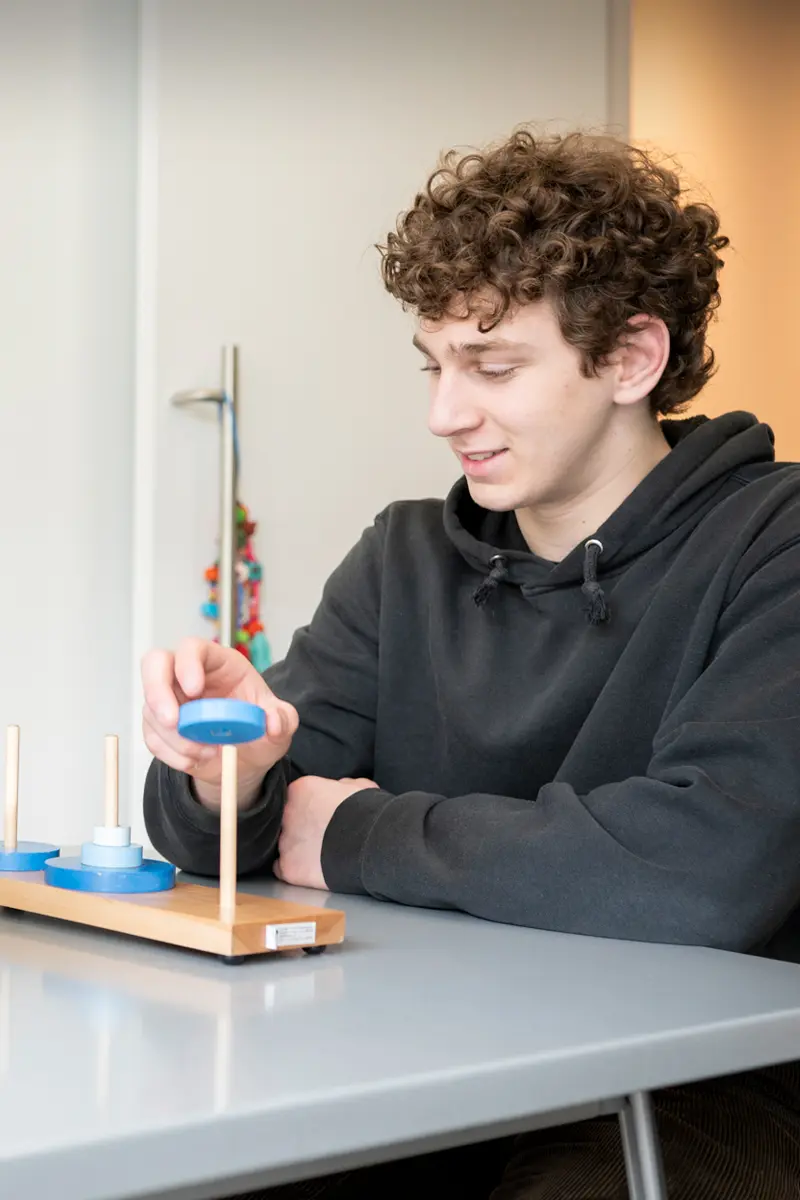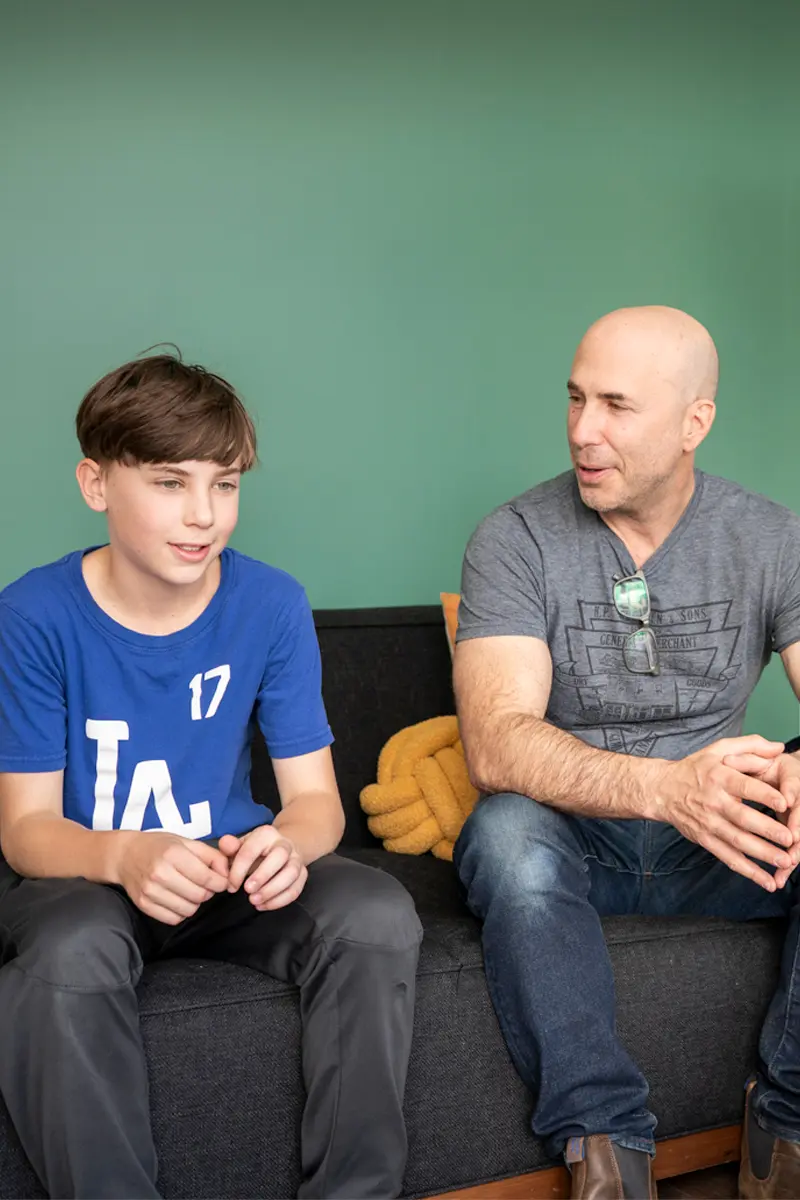What is Autism?
Autism is a lifelong neurodevelopmental difference that shapes how a person experiences and interacts with the world. It can affect how someone communicates, learns, socializes, and processes sensory information.
Every autistic individual is unique. Some may need significant daily support, while others may be highly independent. Autism is not a condition that needs to be ‘fixed’; it’s a natural variation in how human brains work and respond to their environment.
Autism is characterized by differences in social communication and interaction, along with the presence of restricted or repetitive patterns of behaviour, interests, or activities. These differences can affect everyday functioning but may not always be obvious to others.
Autism is formally recognized in the Diagnostic and Statistical Manual of Mental Disorders, Fifth Edition (DSM-5). To receive a diagnosis, an individual must meet specific criteria across two areas:
- Social communication and interaction
- Restricted and repetitive behaviours or interests
Using ‘Autism’ instead of ‘Autism Spectrum Disorder’
At Red Oak, we use the term Autism rather than Autism Spectrum Disorder (ASD) in most of our public materials. While ASD is still the official diagnostic term used in clinical settings and the DSM-5, many autistic individuals and advocacy organizations prefer the term Autism because it feels more respectful, inclusive, and affirming.
This language shift reflects a broader movement toward recognizing Autism as a neurological difference, not a disorder. Using ‘Autism’ also helps reduce medical jargon and makes our content more accessible to families and community members.
We honour both clinical accuracy and lived experience, and we aim to use language that supports dignity, understanding, and connection.
Autism support
There is no cure for Autism, nor do most autistic people want one. However, there are many ways we can support autistic kids, teens and young adults with challenges they may be facing at home, school or in the community. Support needs often evolve over time as children develop skills and face new challenges at different stages of development.
At Red Oak, we recognize that each autistic person is unique and our respectful, person-centred, and neurodiversity-affirming support reflects that. Effective autism supports and interventions may include:
Looking for support for your autistic child or teen? We can help.
Get SupportAutism testing and diagnosis
Autism is diagnosed by qualified professionals such as psychologists or developmental pediatricians.
An Autism assessment provides insight into how a person thinks, communicates, and functions. The report that is provided along with the assessment will provide recommendations for school and home based upon the findings of the assessment.
Some families pursue diagnosis to access educational accommodations or therapeutic services, while others are seeking clarity, validation, or next steps.
Autism vs. ADHD
Autism and ADHD are both neurodevelopmental conditions, and they can co-occur. In fact, research suggests that many autistic individuals also have ADHD and vice versa.
While there may be overlapping traits—such as sensory sensitivity, social differences, or difficulty with executive functioning—the two are distinct conditions:
- ADHD is primarily characterized by a deficit in executive functioning skills.
- Autism involves social communication differences and repetitive behaviours or interests.
Accurate diagnosis is crucial, as it ensures the right types of support and strategies are in place.
Common questions about Autism
What is the ‘spectrum’ in Autism Spectrum Disorder?
The word spectrum reflects the wide range of ways that Autism can present. Autism is not a single condition with a uniform set of traits—it includes a broad diversity of communication styles, learning profiles, sensory experiences, and support needs.
The spectrum is not linear. A person isn’t more or less Autistic based on how much support they need. Instead, each individual has a unique profile that may vary over time or across settings.
Is Asperger’s the same as Autism?
Asperger’s Syndrome was once used to describe autistic individuals who had strong verbal and cognitive skills. It is no longer a separate diagnosis in the DSM-V, the diagnostic manual, and has been folded into the broader category of Autism Spectrum Disorder. Today, all presentations are considered part of Autism.
What does high-functioning Autism mean?
High-functioning is not a formal diagnosis and can be misleading. Many autistic advocates have shared that the terms high functioning and low functioning are not helpful. Functioning labels can minimize the internal struggles a person may experience, even if they appear to be coping well, or underestimate the skills and abilities of a person labelled as low-functioning. These labels also do not consider how functioning fluctuates based on where an individual is, who they are with and personal factors (e.g., how they are feeling). Instead of using functioning labels, it’s more helpful to talk about specific areas of strength and support needs.
Learn more: Functioning Labels Harm Autistic People from the Autistic Self-Advocacy Network (ASAN)
Do you do Autism assessments?
We do not conduct Autism (ADOS) assessments at Red Oak at the current timeUnfortunately, we do not conduct Autism assessments at Red Oak at the current time. Below are some recommendations for clinics that offer Autism assessment:
Flourish on Queen
Dr. Darlene Walker at Clinic on Dupont
Dr. Thomas Rhee at Redpath Centre
Growing Minds










